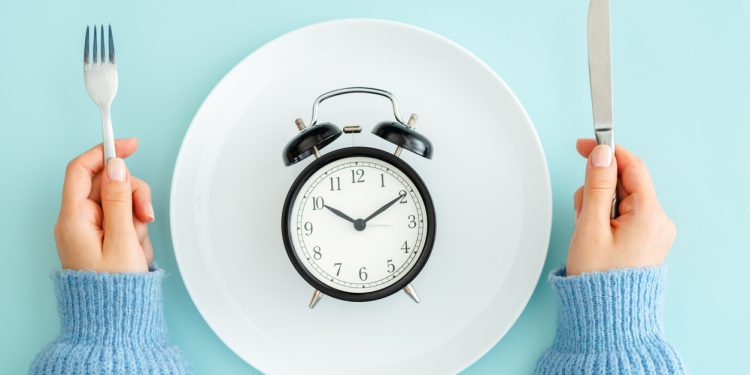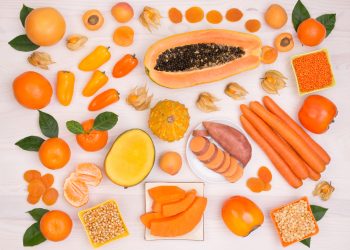Next to supplementing with organ meats, intermittent fasting might just be one of the best things you can do for your health.
What happens when you combine them, though?
If done properly, all sorts of good stuff. It turns out that organ meats contain just the right blend of nutrients to help your body get the most out of fasting. On the flip side, intermittent fasting may make your body more sensitive to the anti-stress, pro-hormone effects of organ meats!
Keep reading to learn more about this match made in heaven.
- What is Intermittent Fasting?
- Intermittent Fasting: Pros and Cons
- What to Eat During Your Next IF Session
- How Organ Meats Can Boost Your Energy
- Liver
- Kidney
- Heart
- Brain
- Sweetbreads
What is Intermittent Fasting?
Intermittent fasting is exactly what it sounds like: a type of fasting that’s practised for brief periods of time. Intermittent fasting aims to take the benefits of extended multiday fasting and condense them down into something far more convenient.
While extended fasting often lasts for 1-3 or more days, intermittent fasting usually calls for a fasting window of 16 hours, followed by an eating window of 8 hours. This is even easier than it might seem — many people who intermittent fast simply forgo breakfast and eat two-three healthy meals between the hours of 12 pm and 8 pm.
Also known as IF, intermittent fasting is both powerful and practical, which probably explains why its popularity has skyrocketed in recent years.
An ever-growing number of studies shows that intermittent fasting may reduce oxidation, inflammation, and brain fog, all while improving body composition and hormonal status. [1]
Intermittent fasting may even help reset your ‘set point,’ or the weight at which your body naturally wants to settle. Remember back in university, when you could eat whatever you wanted and stay slim? Intermittent fasting may sensitise your metabolism enough to help you get that back — a portion of it, at least.
Intermittent fasting also trains you to be metabolically flexible. Most modern-day eaters are accustomed to frequent ‘hits’ of glucose and sucrose, leaving them locked into carb-burning mode. Constant carb metabolism may lead to weight gain, insulin resistance, metabolic syndrome, or even type-II diabetes in the long run.
Intermittent fasting, on the other hand, forces you to dip into fat metabolism — a far stabler, less damaging way of producing energy. Fat metabolism is correlated with:
- Better body composition
- Improved insulin sensitivity
- Easier fat/weight loss
- Stabler energy levels
- Clearer thinking
Intermittent Fasting: Pros and Cons
16/8 intermittent fasting has other potential health benefits, too. It may be correlated with: [2]
- Reduced cancer risks
- Improved hormone levels
- Healthier cholesterol levels
- Improved blood sugar regulation
- Reduced risk of cardiovascular diseases
- Upregulated activation of anti-aging cells
16/8 intermittent fasting is hugely beneficial for most people . . . but it does have some possible downsides.
Intermittent fasting’s limited eating window can work against some people, particularly those with big appetites. If you get so hungry that you overeat during your eating window, IF probably isn’t for you.
Another potential drawback to intermittent fasting? Low energy. Some people experience drastically lower energy when they fast. Give it a week or so for your body to adjust. If you’re still experiencing lethargy, low motivation, or brain fog, IF may not be for you.
Last, but definitely not least, intermittent fasting may not be suitable for women. Women seem to be more heavily affected by certain stress hormones than men are, and these stress hormones can be temporarily elevated by fasting. Women who are active and/or naturally thin usually don’t need intermittent fasting.
And definitely stay away from any type of fasting if you’re nursing, pregnant, or hoping to become pregnant. Your body needs all the healthy calories it can get! [3]
What to Eat During Your Next IF Session
Now that we’ve gone over the benefits of intermittent fasting, let’s look at what to actually eat when you break your fast.
Many people do best by focusing on low-carb, high-protein foods during their eating window. Eating like this allows one to remain in ‘fat-burning mode,’ capitalising on its benefits throughout the day.
And don’t feel the need to shy away from saturated fats. New and improved research shows that high-quality, animal-based saturated fats are far from harmful: [4]
“Whole-fat dairy, unprocessed meat, eggs, and dark chocolate are SFA-rich foods […] that are not associated with increased risk of cardiovascular disease. The totality of available evidence does not support further limiting the intake of such foods.”
Other research shows that certain saturated fatty acids are actually beneficial for your health. These include stearic acid and conjugated linoleic acid, both of which are available in high-quality animal products. [5] It’s quite telling that the creator of intermittent fasting, a bodybuilder named Martin Berkhan, advocated for a diet high in animal protein.
How Organ Meats Can Supercharge IF
As great as whole-fat dairy, eggs, and dark chocolate are, there’s one type of food that meshes with intermittent fasting even better: organ meats!
Organ meats make healthy eating simple. Eating any particular organ meat can amplify and energise the corresponding organ within your body. This “like supports like” phenomenon may sound like woo, but it’s increasingly supported by scientific evidence. [6]
Beef liver for energy mobilisation
Feel free to think of beef liver as nature’s multivitamin. With its combination of B vitamins, enzymes, iron, and preformed vitamin A, liver is so high in nutrients that you shouldn’t consume large amounts of it everyday. It’s more of a supplemental superfood. [7]
The B vitamins in beef liver help your body mobilise carbs and fats, providing your body with available energy throughout your fasting window. Beef liver may also reduce your risk of developing nutrient deficiencies.
Don’t enjoy the smell or flavour of freshly cooked beef liver? No problem. Our PrimeOrgan™ Organic Grass-Fed Beef Liver Supplement makes liver’s amazing nutrient profile readily accessible.
Beef kidney for thyroid function
Beef kidney’s combination of antioxidants, peptides, and enriching factors allows it to benefit the health of your own kidneys. [8] Below are the nutritional highlights of a small portion of fresh beef kidney:
- Iron: 58% RDA
- Vitamin A: 47% RDA
- Vitamin B2: 168% RDA
- Vitamin B6: 52% RDA
- Vitamin B12: 1,146% RDA
- Selenium: 202% RDA
Beef kidney’s selenium content means it may prevent the metabolic slowdown that sometimes (sometimes!) comes with fasting. How so? Selenium directly supports the production of key thyroid hormones, like T3 and T4, that upregulate metabolism. Adequate selenium intake ensures that your metabolism burns hot throughout your next fasting window.
Our PrimeOrgan™ Organic Grass Fed Beef Organs Supplement is a great source of organic beef kidney.
Beef heart for heightened cardiovascular benefits
Intermittent fasting is already heart-healthy, so why not take things to the next level by adding in nature’s very best coenzyme Q10 source?
Also known as CoQ10, this special coenzyme may protect the heart from oxidation, inflammation, and general stress. It may even reduce your risk of developing heart issues in the long run. [9]
Our PrimeOrgan™ Organic Grass Fed Beef Organs Supplement is a great source of organic beef heart.
Beef brain for cognitive function
Beef brain may not be the first thing you think of when you think superfood . . . but don’t underestimate it.
Rich in ‘good’ cholesterol and brain-boosting youth hormones, beef brain may very well be the perfect fuel for your own brain. Brain is also rich in vitamin B12, choline, and more. [10] Why not pair intermittent fasting with supplemental beef brain to supercharge its cognitive benefits?
Sweetbreads
The term sweetbreads is a bit of a misnomer — they’re neither sweet nor bready. Sweetbreads typically refers to the thymus or pancreas. These organs are rich in iron, vitamin B6, and vitamin B12. Unlike most animal products, they’re even rich in vitamin C! Sweetbreads may be just the thing to bring satiation and nutrient sufficiency to your intermittent fasting routine.
How Organ Meats Can Correct Nutrient Deficiencies
Speaking of nutrient sufficiency, organ meats may also help ensure you avoid any fasting-related deficiencies. They’re rich in:
- Vitamin D3
- Vitamin B1
- Vitamin B3
- Vitamin B6
- Vitamin B12
- Vitamin A
- Carnosine
- Carnitine
- Creatine
- Taurine
- DHA
- Iron
- Zinc
. . . and more. Here’s a closer look at some of the highlights.
Vitamin B3/niacin
Niacin is one of the most important B vitamins when it comes to mobilising energy. Niacin can be consumed directly, or synthesised from certain amino acids. Organ meats promote niacin repletion both ways!
Riboflavin
Riboflavin is right alongside niacin in terms of pro-metabolic nutrients. In addition to promoting energy uptake, it also promotes iron absorption.
Vitamin A
Think fasting gives you a healthy glow? Wait until you add vitamin A into the mix. This vitamin increases skin cell health and turnover, setting the stage for an all-natural glow-up. [11] If any of this sounds good to you, you may be interested in supplementing with beef liver.
Zinc
Red meat is an excellent source of zinc — the most bioavailable form of zinc on the planet. [12] Zinc makes IF’s hormonal benefits even more exciting by optimising your body’s levels of anabolic hormones like testosterone and progesterone.
IF and Organ Meat Supplements: Closing Thoughts
Intermittent fasting and organ meats are a match made in health and wellness heaven. While IF can be effective all on its own, organ meats contain the very nutrients needed to make your next fast truly shine. Feel free to incorporate some beef liver, kidney, or heart into your intermittent fasting routine. We think you’ll like what happens next.








